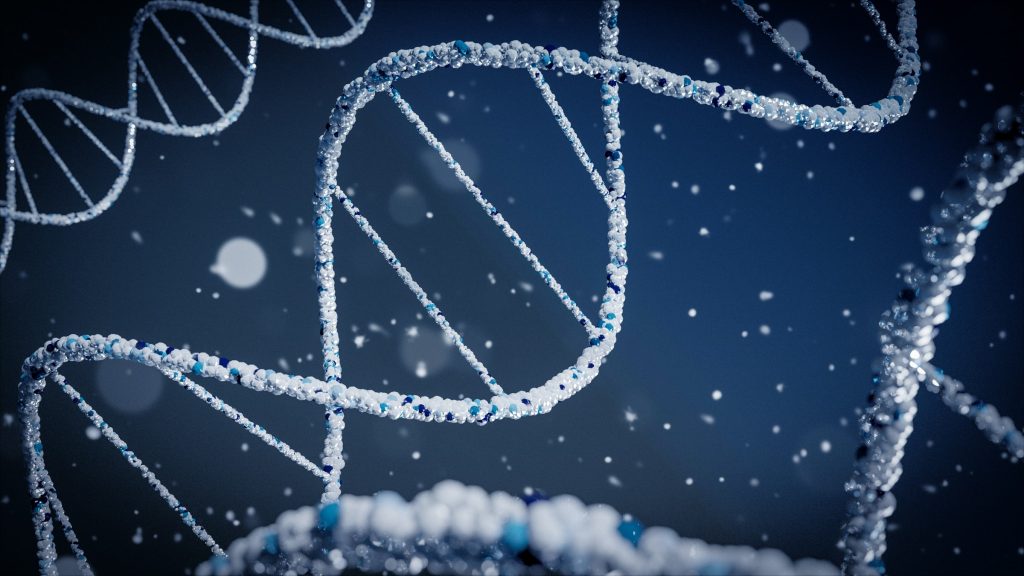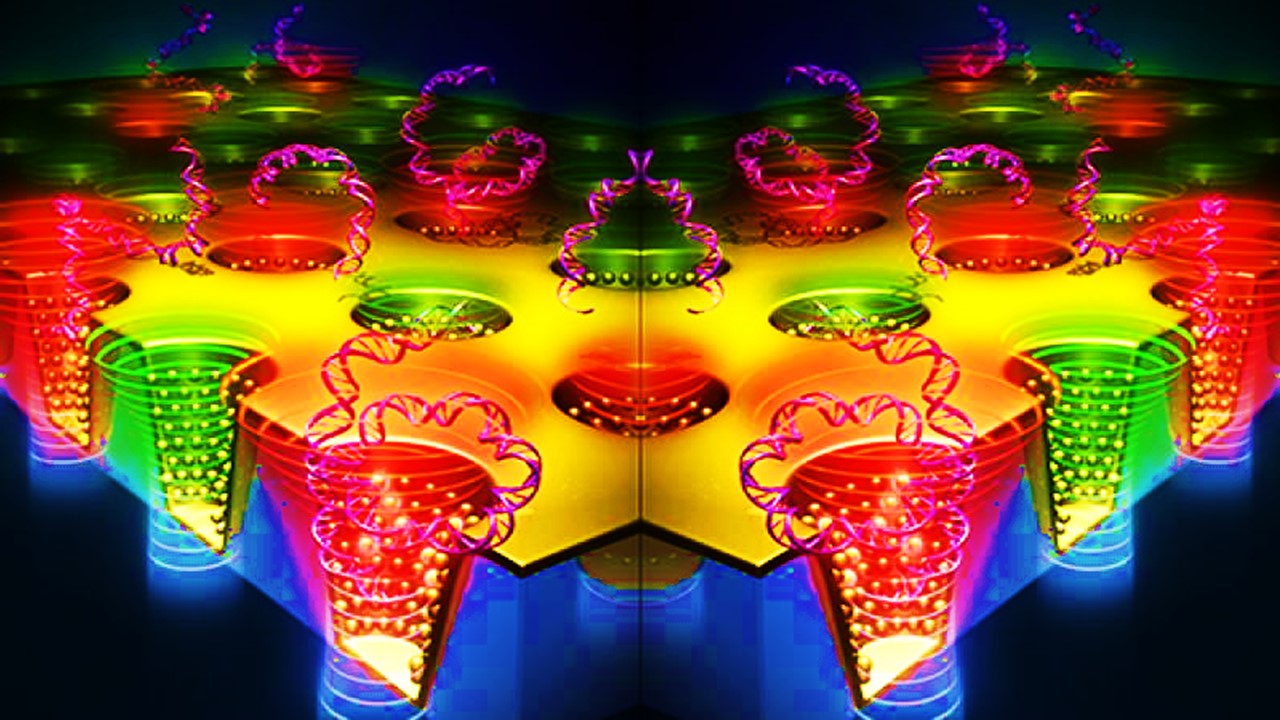
The synthetic biology industry is expected to triple in size, from $9.5 billion to $30.7 billion this year alone. Synthetic DNA represents an innovative approach to drug discovery, with the potential to revolutionise areas like antibody therapeutics and cancer treatment. The latest advancements in synthetic genomics demonstrate the impact this biotechnology could have for drug development, especially so in the fight against COVID-19.
Introduction
Synthetic biology has a number of definitions, but can be characterised as the redesigning and engineering of organic biological systems for useful purposes. This area of biology is built on a multidisciplinary approach, combining the expertise of biotechnology, engineering and science to develop “novel artificial biological pathways or synthetic biomolecules”.
It is important to distinguish the difference between synthetic biology and genome editing. In synthetic biology, genetic engineering is constructed on a larger scale, in which scientists synthesise long sequences of DNA to form genes either found in other organisms or which are entirely novel. Genome editing, on the other hand, involves smaller changes within an organism’s own DNA – these changes can be deletions or inserting small DNA sequences into the genome.
Synthetic DNA is an area of synthetic biology which has been developing for a number of years, and refers to artificial genetic constructs which are designed and manipulated using computer-aided design software.
The process for synthesizing artificial DNA relies on a group of chemical compounds known as phosphoramidites. One of the disadvantages for using these compounds is that they become unstable when exposed to temperatures above -20 degrees celsius; the instruments used for DNA synthesis often fail to cool down phosphoramidites which results in their early degradation.
According to a recent article however, researchers have developed a simple but effective technology in which “the production of phosphoramidites can be automated and integrated directly into the instrument for DNA synthesis.” In addition to preserving the phosphoramidites, the automated integration significantly reduces time of the DNA synthesis which would normally take up to 12 hours.
Synthetic DNA has become a key area of interest for a number of pharma companies, who hope to yield the technological innovations of artificial genetic synthesis for drug discovery. New synthetic genomes have been suggested to accelerate the discovery and development for diagnostics, vaccines and therapeutics for the COVID-19 pandemic.
Innovations in drug development
The screening of chemical libraries for small-drug-like molecules has been the approach to drug discovery for many years, utilising innovations like high-throughput screening to accelerate the process.
While this method remains popular in the drug development arena, there are notable limitations to this approach, especially in terms of emerging and rare diseases. In a recent article, it was inferred that “the struggling pipelines of pharmaceutical companies aiming to develop truly novel antibiotic therapies against drug-resistant pathogens, provide a startling glimpse into just how challenging finding novel compounds and targets can be.”
The ability to engineer genes and molecules to order has opened a number of innovative avenues for pharmaceutical companies to go down, CRISPR-based gene therapies being one of the most promising.
Synthetic DNA has the potential to yield powerful results for precision medicine, especially in oncology. It has been suggested that the development of personalised custom DNA probes could be used to identify specific genetic features via liquid biopsy followed by next generation sequencing for diagnosis or monitoring of therapeutic response.
Recombinant antibody technology is another area of drug development in which synthetic DNA sequencing could support next generation therapeutic developments. The synthesis of synthetic DNA sequences has the potential to further revolutionise antibody discovery by generating a “rationally designed, codon-optimised antibody with 2- to 10-fold more variants than conventional methods”.
One of the main challenges for synthetic DNA analysis is the relatively high cost for specialised equipment and trained synthetic chemists, hence much of this work is outsourced to CROs. However, it has been inferred that this method could be performed “in-house” with sequencers based on thermal chip technology. This particular technology, which offers highly accurate synthesis of long DNA strands, could transform the efficiency of the overall process.
Genome engineering
Generating an entire synthetic genome has been a target for many years within biotechnology due to the potential value for drug discovery and developing therapeutics. This area of synthetic biology uses aspects of genetic modification on pre-existing life forms in order to synthesise new DNA or entire organisms.
Synthetic genomes are beginning to demonstrate value across many therapeutic areas, and recently has shown potential to support the fight against COVID-19.
Codex DNA, referred to as a “pioneer in automated benchtop synthetic biology systems” announced on September 1st, the release of its first full-length synthetic genome for the Delta variant of SARS-CoV-2 virus. The synthetic genome enables researchers to better understand the genetic profile of the infectious COVID-19 variant in order to generate breakthrough therapies, vaccines, and diagnostics.
One of the obvious advantages to this approach is the fact that scientists can work safely with the replicated virus without the extensive security measures required when working with the actual pathogen. The automated synthetic genome aims to provide a solution for pharma companies hoping to “accelerate timelines” for vaccine development and drug discovery.
In a recent statement, Todd R. Nelson, PhD, CEO of Codex DNA, said “ Codex DNA is committed to building and providing innovative synthetic tools that accelerate virus research and simplify the discovery and development processes. Codex DNA is committed to building and providing innovative synthetic tools that accelerate virus research and simplify the discovery and development processes”.
Charlotte Di Salvo, Former Editor & Chief Medical Writer
PharmaFEATURES
Subscribe
to get our
LATEST NEWS
Related Posts

Molecular Biology & Biotechnology
Myosin’s Molecular Toggle: How Dimerization of the Globular Tail Domain Controls the Motor Function of Myo5a
Myo5a exists in either an inhibited, triangulated rest or an extended, motile activation, each conformation dictated by the interplay between the GTD and its surroundings.

Drug Discovery Biology
Unlocking GPCR Mysteries: How Surface Plasmon Resonance Fragment Screening Revolutionizes Drug Discovery for Membrane Proteins
Surface plasmon resonance has emerged as a cornerstone of fragment-based drug discovery, particularly for GPCRs.
Read More Articles
Designing Better Sugar Stoppers: Engineering Selective α-Glucosidase Inhibitors via Fragment-Based Dynamic Chemistry
One of the most pressing challenges in anti-diabetic therapy is reducing the unpleasant and often debilitating gastrointestinal side effects that accompany α-amylase inhibition.













